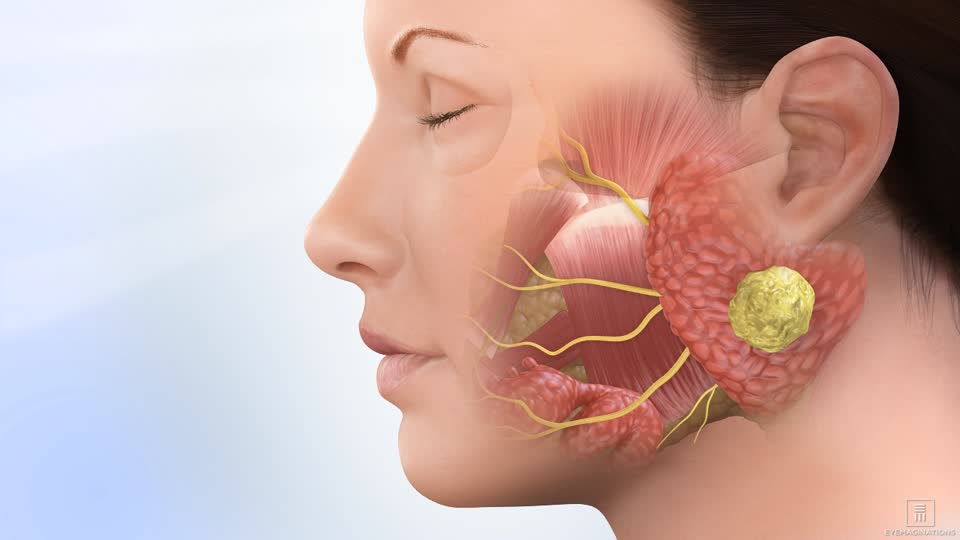Conveniently located to serve San Diego
 Salivary Glands
Salivary GlandsYou have three pairs of major salivary glands: parotid, sublingual, and submandibular glands. Each gland secretes saliva into your mouth via tubes, or ducts. Salivary glands produce saliva to moisten your mouth, initiate digestion, and help prevent tooth decay. It is important to drink lots of liquids daily. Dehydration is a risk factor for salivary gland disease. If you want to treat problems with your salivary glands in San Diego, contact us today.
What Are Salivary Gland Problems?
Salivary gland problems that cause clinical symptoms include: obstruction, infection, tumors, and other disorders. If these occur, it can make swallowing and chewing food difficult, increase mouth infections, and worsen your risk for tooth loss and cavities.
Symptoms of Salivary Gland Problems
A lump or area of swelling near your salivary gland is a common sign of a salivary gland tumor; however, it does not mean you have cancer. Most salivary gland tumors are noncancerous (benign). Other symptoms include dry mouth, fever, foul-tasting drainage in the mouth, pain, and trouble opening your mouth.
Causes of Salivary Gland Problems
The more common causes of problems with the salivary glands include the following:
- Salivary stones – These crystallized saliva deposits can block saliva flow, resulting in swelling and pain. These will continue unless the blockage is removed.
- Infections – The flu, mumps, and other viral infections may cause salivary glands to swell, resulting in chipmunk cheeks.
- Salivary gland infections – A blocked duct in the mouth often causes this type of bacterial infection. It, in turn, causes a lump in the salivary glands and a bad taste in the mouth.
- Tumors – Two of the top tumors that cause salivary gland problems are Warthin’s tumor and pleomorphic adenomas. The former affects the parotid gland, is usually benign, and is more common among men. The latter also occurs in the parotid, minor salivary, and submandibular glands.
- Cysts – Salivary glands may develop cysts due to tumors, salivary stones, infections, and injuries. These cysts may end up hindering the way you speak and eat.
Diagnosing Salivary Gland Problems
Doctors will likely write you up for diagnostic testing after conducting a physical exam and checking your medical history. They may want to check the salivary gland blocks through a dental X-ray, CT scan, or MRI, depending on how much the doctors need to see the glands.
Treatment Options
Salivary gland disease can be treated medically or surgically. Selection of the treatment plan depends on the nature of the problem.
You might need surgery if you have a tumor in the salivary glands. If the mass turns out to be cancerous, you may need radiation therapy only 4-6 weeks after the surgery.
You might not need radiation treatments if you don’t have cancerous cells. Instead, you might be prescribed other special measures to address the disorder’s symptoms. These may include special mouthwashes, antibiotics, or saltwater solutions.
Contact Us
Address your problems with your salivary glands in San Diego. We have ear, nose, and throat specialists who can help, so contact ENT Associates of San Diego today.
